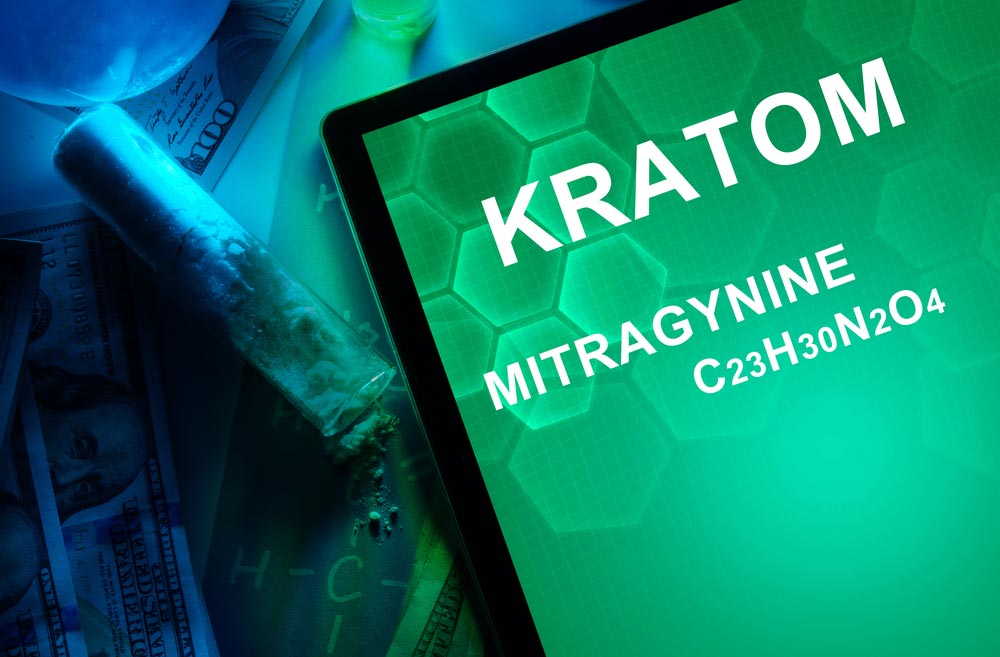
Kratom has gained popularity in recent years as a natural remedy for pain relief, energy enhancement, and even as a tool for overcoming opioid addiction. Marketed as a safe, herbal supplement, many people view kratom as a harmless alternative to prescription medications. However, the reality is that kratom can be addictive, and chronic use can lead to physical dependence, withdrawal symptoms, and long-term health consequences.
At West Coast Detox, we believe in educating individuals and families about the risks associated with all substances—including those that may seem “natural” or “safe.” In this article, we will explore what kratom is, how it affects the body, the signs and symptoms of kratom addiction, and what to expect during withdrawal. Whether you or someone you love is struggling with kratom use, this information can help guide the path toward safe and effective recovery.
What is Kratom?
Kratom (Mitragyna speciosa) is a tropical tree native to Southeast Asia. The leaves of the kratom plant contain active compounds—primarily mitragynine and 7-hydroxymitragynine—that interact with opioid receptors in the brain, producing both stimulant and sedative effects depending on the dose.
At lower doses, kratom can increase energy, alertness, and sociability. At higher doses, it tends to produce sedative effects similar to opioids, including euphoria and pain relief. It is available in many forms, including:
- Powdered leaves
- Capsules
- Extracts
- Teas
- Resins
Though kratom is currently legal in most parts of the United States, its legality is under review in several states due to growing concerns about abuse and health risks.
Why Do People Use Kratom?
People turn to kratom for a variety of reasons:
- Pain Management – Kratom has analgesic properties that can alleviate chronic pain.
- Energy Boost – Lower doses can mimic the effects of caffeine or stimulants.
- Mood Enhancement – Kratom users often report a temporary boost in mood or feelings of euphoria.
- Opioid Withdrawal Relief – Some individuals use kratom as a self-treatment for opioid withdrawal symptoms.
- Recreational Use – For some, the psychoactive effects of kratom make it appealing as a recreational drug.
While some users initially find kratom beneficial, repeated use can lead to dependency and serious health risks.
Is Kratom Addictive?
Despite its herbal origins, kratom can be physically and psychologically addictive. Long-term or heavy users may develop tolerance, meaning they need more of the substance to achieve the same effects. They may also experience cravings and withdrawal symptoms when they stop using it.
The active compounds in kratom bind to the brain’s opioid receptors, much like prescription painkillers or heroin. This interaction can lead to similar patterns of addiction, especially in those who are using kratom daily or in large amounts.
In 2021, the National Institute on Drug Abuse (NIDA) acknowledged the growing number of people entering treatment programs for kratom-related problems. This rise underscores the need for greater awareness and professional treatment options.
Signs of Kratom Addiction
Recognizing kratom addiction can be challenging, especially since it’s often marketed as a wellness product. However, certain behavioral, physical, and psychological signs may indicate a problem.
Behavioral Signs:
- Using kratom daily or multiple times a day
- Inability to stop or cut down despite wanting to
- Spending significant time obtaining, using, or recovering from kratom
- Ignoring responsibilities or hobbies in favor of kratom use
- Isolating from friends or family
Physical Signs:
- Nausea or vomiting
- Weight loss
- Frequent sweating
- Constipation
- Insomnia
- Muscle aches
- Decreased appetite

Psychological Signs:
- Irritability or mood swings
- Anxiety or panic attacks
- Depression
- Paranoia or hallucinations (in high doses)
- Mental fog or confusion
If you or a loved one is exhibiting these signs, it may be time to seek professional help. At West Coast Detox, our experienced clinicians are trained to identify and treat kratom addiction safely and effectively.
Get Your Questions Answered
Reach out today to get the answers you need about drug and alcohol detox. Our compassionate team is here to guide you through every step of the process and help you take the first step toward recovery.
Kratom Withdrawal Symptoms
One of the key indicators of kratom dependence is experiencing withdrawal symptoms when trying to stop. Kratom withdrawal can resemble opioid withdrawal, although the severity varies depending on usage habits, dosage, and individual biology.

Common Withdrawal Symptoms:
- Muscle aches
- Joint pain
- Insomnia
- Irritability
- Runny nose
- Diarrhea
- Abdominal cramps
- Intense cravings
- Depression
- Anxiety
- Tremors
These symptoms typically begin within 12 to 24 hours of the last dose and can last anywhere from 3 to 10 days. In some cases, psychological symptoms like depression and anxiety may persist longer. Attempting to detox from kratom alone can be difficult, especially when withdrawal symptoms become overwhelming. Medical supervision, supportive care, and emotional guidance can significantly ease this process.
How Is Kratom Addiction Treated?
Overcoming kratom addiction often requires a comprehensive, structured approach. At West Coast Detox, we offer evidence-based treatment plans tailored to the unique needs of each client. Here’s how we typically approach kratom detox and recovery:
1. Medical Detox
The first step is safely managing withdrawal. Our medical detox program provides:
- 24/7 monitoring
- Medication-assisted support to ease withdrawal symptoms
- Nutritional support and hydration
- Comfortable, supervised environment
While kratom withdrawal is not typically life-threatening, the symptoms can be distressing enough to cause relapse if not properly managed.
2. Dual Diagnosis Treatment
Many individuals who struggle with kratom addiction also suffer from co-occurring mental health conditions, such as anxiety, depression, or PTSD. Dual diagnosis treatment addresses both issues simultaneously through:
- Psychiatric evaluation
- Individual therapy
- Medication management (if needed)
- Mindfulness and behavioral therapies
This integrated approach increases the chances of long-term recovery by treating the root causes of addiction.
3. Inpatient or Outpatient Rehab
Following detox, clients may transition to an inpatient or outpatient rehab program depending on the severity of their addiction and personal circumstances. Our programs include:
- Cognitive Behavioral Therapy (CBT)
- Motivational Interviewing (MI)
- Group therapy
- Family counseling
- Holistic therapies such as yoga and meditation
These tools help clients build coping skills, restore emotional balance, and reconnect with a sober, fulfilling lifestyle.
4. Aftercare Planning
Sustained recovery requires ongoing support. Our aftercare services include:
- Relapse prevention planning
- Sober living referrals
- Support group connections
- Continued therapy and case management
We remain dedicated to our clients even after they leave our facility, helping them build strong foundations for a sober future.
The Dangers of Self-Treating With Kratom
Many individuals begin using kratom to self-medicate for chronic pain, anxiety, or opioid withdrawal. Unfortunately, this approach can be risky. Without proper medical guidance, kratom use can spiral into dependency, making the original problem worse rather than better.
Moreover, kratom is not regulated by the FDA, which means that dosage, potency, and purity can vary widely between products. Some kratom supplements have been found to contain harmful additives or contaminants, including heavy metals and bacteria.
Self-treatment may delay or prevent individuals from seeking professional help, increasing the risk of overdose, adverse reactions, or long-term damage.
Legal Status and Public Health Concerns
As of now, kratom remains legal in most U.S. states, though some jurisdictions have banned its sale and possession. The DEA has considered classifying kratom as a Schedule I controlled substance but has not yet done so. Meanwhile, the FDA has issued warnings about the potential for addiction, abuse, and death associated with kratom use.
Public health experts are calling for more research and regulation. The lack of oversight, combined with increasing usage rates, makes kratom a growing concern for addiction treatment providers nationwide.
At West Coast Detox, we stay up to date with developments in substance use trends and tailor our treatment approaches accordingly.
When to Seek Help
It can be difficult to admit that a “natural” substance like kratom has become a problem. But addiction doesn’t discriminate based on whether a drug is synthetic or plant-based. If you or someone you love is:
- Using kratom to function daily
- Experiencing withdrawal symptoms
- Unable to stop despite repeated attempts
- Suffering emotionally, physically, or socially because of use
…it may be time to reach out for help. Recovery is possible. With compassionate care, expert guidance, and a structured plan, you can break free from kratom addiction and rebuild your life.

Get Help at West Coast Detox
At West Coast Detox, we understand the complex nature of addiction—especially when it involves substances like kratom that may fly under the radar. Our team of doctors, therapists, and addiction specialists provide comprehensive treatment in a safe and supportive environment.
Whether you’re just beginning to notice signs of kratom dependence or are struggling with long-term use, we’re here to help. Contact us today to learn more about our detox and recovery programs.
Your journey to healing can start today.























